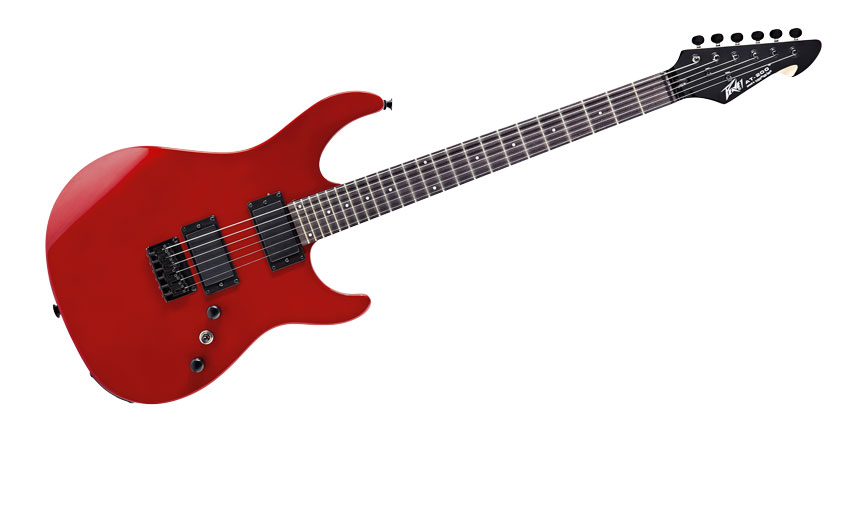MusicRadar Verdict
A further advancement to an already revolutionary piece of technology, which could prove indispensable to recording guitarists.
Pros
- +
Alternate tunings are impressive. 21 presets.
Cons
- -
Pickup models lack responsiveness. Price.
MusicRadar's got your back
When we reviewed Peavey's AT-200 last year, we were thoroughly impressed by Antares's built-in Auto-Tune technology - its Solid-Tune and String Tune tech keeps your tuning and intonation perfect across the 'board.
However, Antares now offers three upgrades to expand your sonic options: the Essential Pack, Pro Pack and Complete Pack. The Complete Pack is the most expensive of the three, but it's also the most, well, complete, and offers a bewildering array of tuning and tonal options.
Where the stock AT-200 features a handful of tunings (these are accessed by 'tricking' the system using specific chords), the Complete Pack adds 12 alternate tunings, nine pickup models, eight doubling/ harmony options and a virtual capo with a one-octave up or down range. These can be accessed via the enhanced MIDI functionality, or more usefully, you can find them via the handy new Fret Control.
"For ease of access, 21 presets are available to store and recall settings in one go"
The concept behind Fret Control is simple, if a little fiddly to operate. Settings are assigned to frets and strings - for example, Open D tuning mode is the 6th fret on the A string.
To activate it, simply hold down the AT-200's volume knob, then pick the string and fret associated with it - that's it!
Things get slightly more complicated if you want multiple settings active simultaneously: you can strum three strings at once, or do the three changes individually. So, to activate the California Single Coil pickup model, Open E tuning and Twelve String doubling, the Fret Control 'chord' is the 1st fret on the low E string, 3rd fret on the A string, and 1st fret on the D string, whether played together or with individual control presses. For ease of access, 21 presets are available to store and recall all these settings in one go.
Sounds
"There's still no denying the satisfaction of consistently perfect tuning"
Activating the Auto-Tune system adds some hiss and sucks a little high end from the AT-200's humbuckers, but there's still no denying the satisfaction of consistently perfect tuning. The String Tune's vibrato and bend detection have been upgraded since our test of the prototype last year, too.
Want all the hottest music and gear news, reviews, deals, features and more, direct to your inbox? Sign up here.
Of the new functions available, the alternate tunings are particularly impressive, and the relative ease of Fret Control means you're more likely to use them than if you're tuning back and forth by hand.
Elsewhere, bass tunings offer reasonable low-end impressions, while doubling and capo functions are similarly useful, and only begin to get into Whammy-like synthetics in the furthest reaches of their ranges.
Less inspiring are the pickup models, which sound roughly like their respective descriptions, but can't match the responsiveness of true analogue pickups. To a certain extent, that's to be expected, but these lack presence, especially when you run them into overdriven territory.
While the guitar and its tone remain underwhelming, the Peavey AT-200 - not to mention the Auto-Tune technology that resides within - is still a thoroughly enticing prospect, particularly with the range of functional new features reviewed here. So while $299 might seem a little steep for an upgrade, this is one more step towards the future of the guitar, and that's a pretty remarkable feat.
Mike is Editor-in-Chief of GuitarWorld.com, in addition to being an offset fiend and recovering pedal addict. He has a master's degree in journalism, and has spent the past decade writing and editing for guitar publications including MusicRadar, Total Guitar and Guitarist, as well as a decade-and-a-half performing in bands of variable genre (and quality). In his free time, you'll find him making progressive instrumental rock under the nom de plume Maebe.

